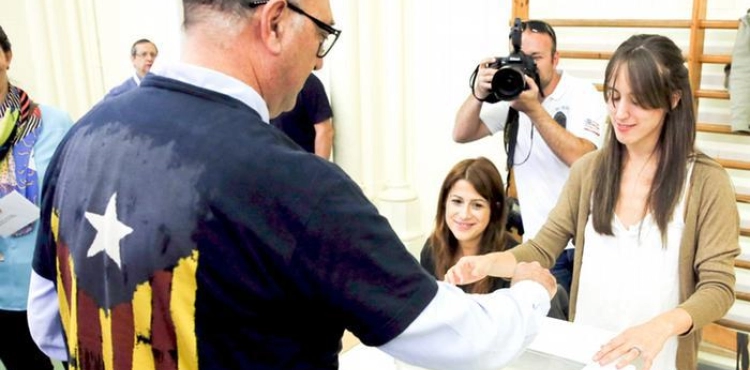The Catalonia region in northeastern Spain, which witnessed a secession attempt in 2017, is organizing Sunday local elections overwhelmed by the Covid-19 crisis, and Socialist Prime Minister Pedro Sanchez hopes to expel the separatists from power in a bet Flour.
These elections, which the regional government postponed to the end of May due to the outbreak of the epidemic, but the judiciary kept them on their original date, in the context of the sharp rise in the number of infections since the end of the year holidays.
People who are infected with the virus or are subject to quarantine have the right to go to the polling stations between six and seven in the evening GMT, before they are closed, in a controversial decision.
Polling station administrators who were chosen by lot and will wear protective gear on election day, tried to withdraw collectively from performing this task. Nearly 31,000 people out of 82,000 submitted withdrawal requests.
Authorities asserting that the elections were not at risk did not specify how many applications were accepted.
The withdrawal request was denied, Rodrigo Sanchez, a 53-year-old banker whose wife, who suffers from cancer, has to undergo a chemotherapy session three days before the election.
He told Agence France-Presse that doctors "told us it is not a good idea that someone who has been living with a patient for all this time" is exposed to the possibility of contracting the virus.
Rodrigo did not rule out breaking orders despite the risk of facing a court sentence, stressing that "his wife´s life comes before everything."
The government affirms that it has taken all necessary measures at the health level: conducting checks for pollsters, providing "FPB2" masks, choosing large polling stations with good and even open ventilation, in addition to respecting safe distances between people.
The official in charge of organizing local elections, Ismail Peña Lopez, confirmed to France Press that going to a polling station would be "safer than taking the metro or going to work."
Around 5.5 million voters in this region out of a population of 7.8 million, will be able to cast their ballots between 8:00 and 7:00 pm GMT. The results are expected to be released around midnight (23:00 GMT).
Opinion polls expect a high abstention rate that could exceed 40 percent.
Beyond the health framework, political uncertainty also dominates in this affluent region, which has been ruled since 2015 by separatists who led the 2017 stillborn secession attempt.
The central government head, Pedro Sanchez, wants to expel the separatists from power in Barcelona, ​​although he needs their support in Madrid to adopt his program.
Therefore, Sanchez nominated former Health Minister Salvador Ia, who in less than a year became a well-known figure in the battle against the epidemic, to run in the race in Catalonia. Opinion polls show that the competition is intense between him and the two major separatist parties, and he is even slightly ahead of them.
However, the possible victory of the Socialist Minister of Health will not suffice to become the president of Catalonia, one of the economic lungs of the country and the region that enjoys very broad privileges.
Although the two separatist parties are deeply divided, it seems that they are able to maintain the absolute majority in parliament, which will enable them to form a new regional government. In the outgoing parliament, they hold 70 seats out of 135.
And Antonio Barroso of the "Teneo" Research Center warns that "forming a government will be a complicated matter and holding new elections is not excluded", considering that "the separatists have better chances to be able to form a government."
In this case, it is necessary to know which separatist party will come first in the elections, the "Together for Catalonia" party led by regional president Carles Puchimon, which favors the confrontation with the central authority, or the Republican Left Party of Catalonia that supports Pedro Sanchez in Madrid.
In the last regional elections in December 2017, the Pokemon party narrowly led the Republican Left Party.
The shifting balance of power in favor of the Republican Left Party will reinforce the comfortable situation that Pedro Sanchez has instilled in him since he came to power in 2018.












